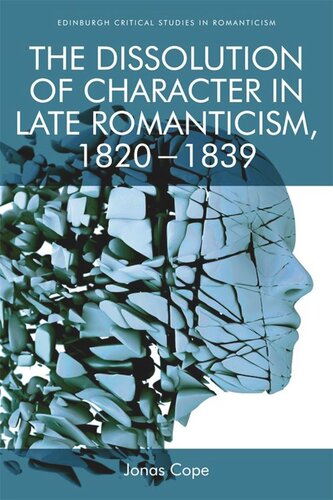

Most ebook files are in PDF format, so you can easily read them using various software such as Foxit Reader or directly on the Google Chrome browser.
Some ebook files are released by publishers in other formats such as .awz, .mobi, .epub, .fb2, etc. You may need to install specific software to read these formats on mobile/PC, such as Calibre.
Please read the tutorial at this link: https://ebookbell.com/faq
We offer FREE conversion to the popular formats you request; however, this may take some time. Therefore, right after payment, please email us, and we will try to provide the service as quickly as possible.
For some exceptional file formats or broken links (if any), please refrain from opening any disputes. Instead, email us first, and we will try to assist within a maximum of 6 hours.
EbookBell Team

4.8
34 reviewsThe idea of character that many of us still take for granted – whether considered in print as an object of representation, or in life as a congenital ‘bias’ or an acquirable moral possession – is the shared concern of a multidisciplinary debate in reform-era Britain. This book argues for the independent merits of several lesser-known works written in England and Scotland during the 1820s and 1830s, recovering in these works a sustained ideological engagement with the ever-slippery concept of character. The Dissolution of Character in Late Romanticism studies texts written by contemporary poets, novelists, essayists, journalists, philosophers, phrenologists, sociologists, gossip-mongers and anonymous correspondents. Its main authors of interest include David Hume, Walter Scott, Charles Lamb, William Hazlitt, Hartley Coleridge, Letitia Landon, Thomas Love Peacock and Thomas Lovell Beddoes.
With a fresh, interdisciplinary approach, this original intervention in Romantic-era scholarship throws character into relief as an especially problematic concept, not only for the poststructuralist critics who study late Romantic writers, but also for the writers themselves. It changes the ways in which literary scholarship has thought about the development of character discourse in the first half of the nineteenth century.